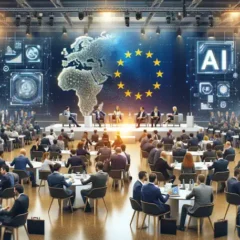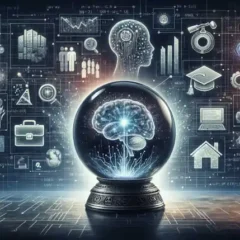AI News
Wikipedia Unveils Three-Year AI Strategy
Wikipedia’s three-year AI strategy aims to enhance the work of human editors, prioritizing human judgment and expertise over automation.
DeepSeek Revives Operations in South Korea Amid Privacy Concerns
Chinese company DeepSeek reopens in South Korea post privacy concerns, addressing data transfer issues to U.S. and China.
Revolutionizing US Sports: AI’s Game-Changing Impact
As American sports fans navigate the packed April calendar – from MLB’s opening weeks to the NBA playoffs and NFL draft – a quiet revolution is reshaping the games we love. Artificial intelligence has emerged as the ultimate utility player in American sports, fundamentally changing how professionals compete, how fans experience games, and how weekend […]
Artificial Intelligence and the Rise of Malicious Bots: A Threat to U.S. Cybersecurity
The internet is now dominated by bot traffic, outpacing human user for the first time, according to a 2025 report by Imperva.
DT Partners with Valley Startup for AI Smartphone
Deutsche Telekom collaborates with Perplexity to launch AI-powered smartphone, targeting European market with innovative features under $1,000.
MIT’s Revolutionary EES Algorithm: A New Era for Self-Training Robots
MIT’s EES algorithm empowers robots to self-train and adapt, revolutionizing autonomy and efficiency in robotics.
Europe Establishes AI Regulations
Europe’s new AI Act sets rules on AI use, creating compliance measures and classifications for different applications, impacting global tech companies.
Biden’s AI Initiative Achieves Key Milestones
Federal agencies achieve key milestones in Biden’s AI initiative, advancing safety, innovation, and equity in AI development.
Revealed: AI’s Hidden Threat of Deceptive “Sleeper Agents”
AI safety startup Anthropic has revealed the existence of deceptive “sleeper agents” within AI systems, challenging current safety methods and raising concerns about AI behavior.
AI’s Crystal Ball: Predicting Life Events with Surprising Accuracy
Researchers have discovered that artificial intelligence (AI) can accurately predict life events by analyzing personal data such as residence, education, income, health, and working conditions.









